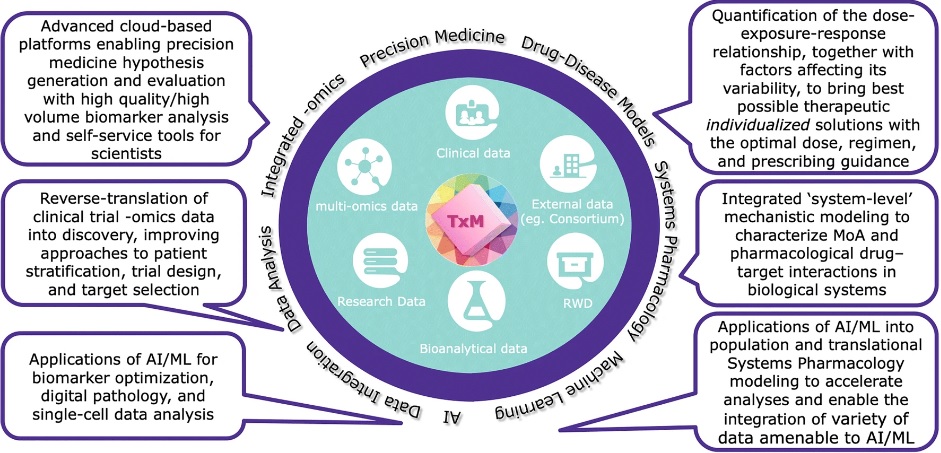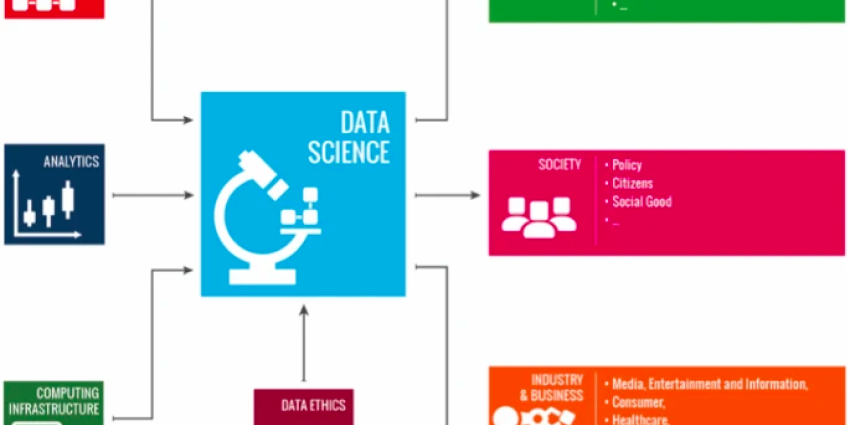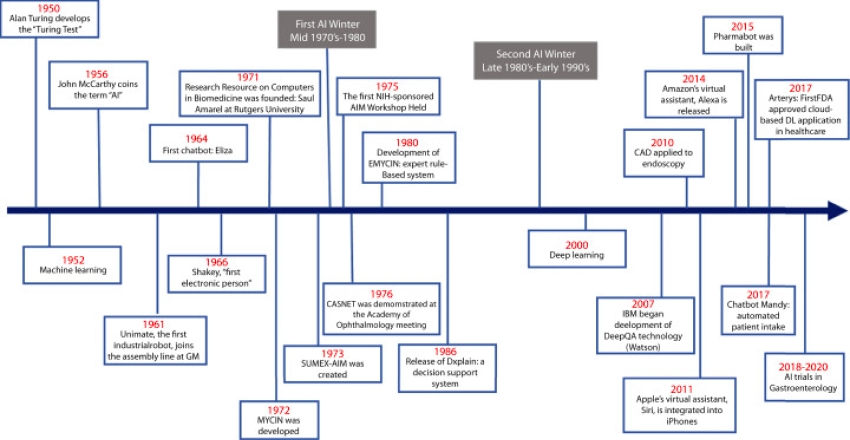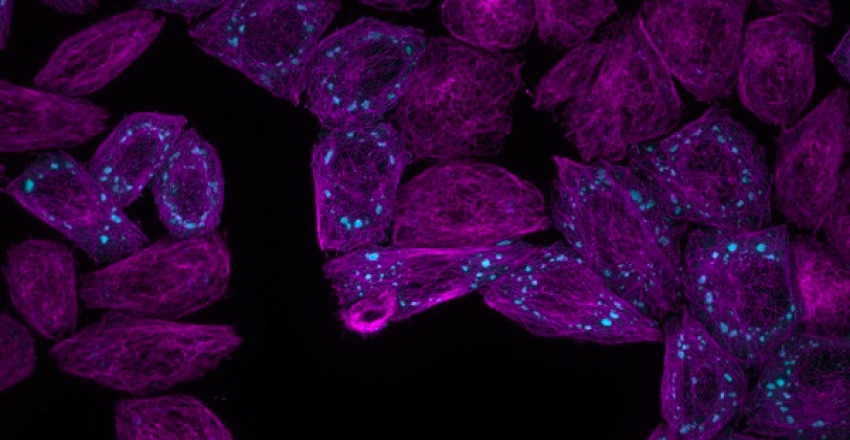


Application of Machine Learning in Translational Medicine: Current Status and Future Opportunities Highlights
Nadia Terranova, Karthik Venkatakrishnan and Lisa J. Benincosa
The exponential increase in our ability to harness multi-dimensional biological and clinical data from experimental to real-world settings has transformed pharmaceutical research and development in recent years, with increasing applications of artificial intelligence (AI) and machine learning (ML). Patient-centered iterative forward and reverse translation is at the heart of precision medicine discovery and development across the continuum from target validation to optimization of pharmacotherapy. Integration of advanced analytics into the practice of Translational Medicine is now a fundamental enabler to fully exploit information contained in diverse sources of big data sets such as “omics” data, as illustrated by deep characterizations of the genome, transcriptome, proteome, metabolome, microbiome, and exposome. In this commentary, we provide an overview of ML applications in drug discovery and development, aligned with the three strategic pillars of Translational Medicine (target, patient, dose) and offer perspectives on their potential to transform the science and practice of the discipline. Opportunities for integrating ML approaches into the discipline of Pharmacometrics are discussed and will revolutionize the practice of model-informed drug discovery and development. Finally, we posit that joint efforts of Clinical Pharmacology, Bioinformatics, and Biomarker Technology experts are vital in cross-functional team settings to realize the promise of AI/ML-enabled Translational and Precision Medicine.
More Info


Road Map for Business Model innovation
Wiebke Reim , Josef Åström and Oliver Eriksson
- Understand AI and organizational capabilities needed for digital transformation;
- Understand current BM, potential for BMI, and business ecosystem role;
- Develop and refine capabilities needed to implement AI; and
- Reach organizational acceptance and develop internal competencies.
More Info


Data science: a game changer for science and innovation
Valerio Grossi, Fosca Giannotti, Dino Pedreschi, et. al.
Data science’s potential for disruptive innovation in science, industry, policy, and people’s lives. The services proposed by So BigData are aimed at using data science to understand the complexity of our contemporary, globally interconnected society.
More Info


Artificial intelligence, the future of intelligence or the intelligence of the future
Aymeric Philibert
Artificial intelligence (AI) involves implementing a number of techniques to enable machines to simulate human cognitive functions, mimic the functioning of the human brain, sometimes its logic, when it comes to answering a question, making decisions or anticipating an event.
More Info


History of artificial intelligence in medicine
Vivek Kaul , Sarah Enslin , Seth A Gross
Artificial intelligence (AI) was first described in 1950; however, several limitations in early models prevented widespread acceptance and application to medicine. In the early 2000s, many of these limitations were overcome by the advent of deep learning. Now that AI systems are capable of analyzing complex algorithms and self-learning, we enter a new age in medicine where AI can be applied to clinical practice through risk assessment models, improving diagnostic accuracy and workflow efficiency. This article presents a brief historical perspective on the evolution of AI over the last several decades and the introduction and development of AI in medicine in recent years. A brief summary of the major applications of AI in gastroenterology and endoscopy are also presented, which are reviewed in further detail by several other articles in this issue of Gastrointestinal Endoscopy.
More Info


Artificial Intelligence could ‘crack the language of cancer and Alzheimer's’
Prof. Tuomas Knowles; Dr. Kadi Liis Saar et.al.
Professor Tuomas Knowles, lead author of the paper and a Fellow at St John’s College, said Bringing machine-learning technology into research into neurodegenerative diseases and cancer is an absolute game-changer".
More Info


